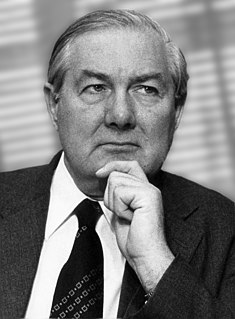A Quote by Steve Hilton
Most countries in the world are not in the E.U. I think Britain, the world's fifth largest economy, can cope with life outside.
Related Quotes
Italy is the fourth-largest economy in Europe and the eighth-largest economy in the world, and its banking system is collapsing. And Germany is desperate. It must maintain its standard of living. It can only do that with exports and Deutsche Bank is very exposed to Italian debt. But so is the rest of Europe.
At the moment we are hard-wired into the European markets - 50% of our exports go to Europe - and that has not been good for the UK. So I'm not saying "make Britain entirely dependent on China". I'm saying "let's diversify a bit". When I became chancellor, China was our ninth largest trading partner. This is the world's second biggest economy. China was doing more business with Belgium than it was with Britain.
As the world's largest economy and second-largest carbon emitter, as a country with unsurpassed ability to drive innovation and scientific breakthroughs, as the country that people around the world continue to look to in times of crisis, we've got a vital role to play. We can't stand on the sidelines. We've got a unique responsibility.
The money economy thus leaves a large ecological footprint, defined as the amount of land and resources required to meet a typical consumer's needs. For example, with only about 4% of the world's population, the United States, the largest money economy, consumes in excess of one-quarter of the world's energy and materials and generates in excess of 25 percent of the world's greenhouse gas emissions.
I think that Canada is one of the most impressive countries in the world, the way it has managed a diverse population, a migrant economy. The natural beauty of Canada is extraordinary. Obviously there is enormous kinship between the United States and Canada, and the ties that bind our two countries together are things that are very important to us.































